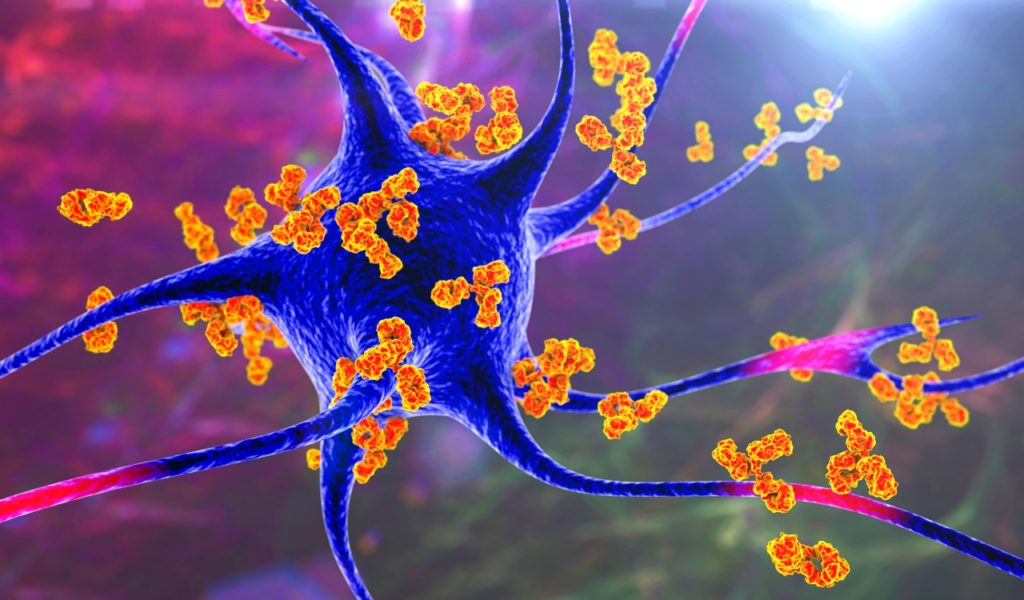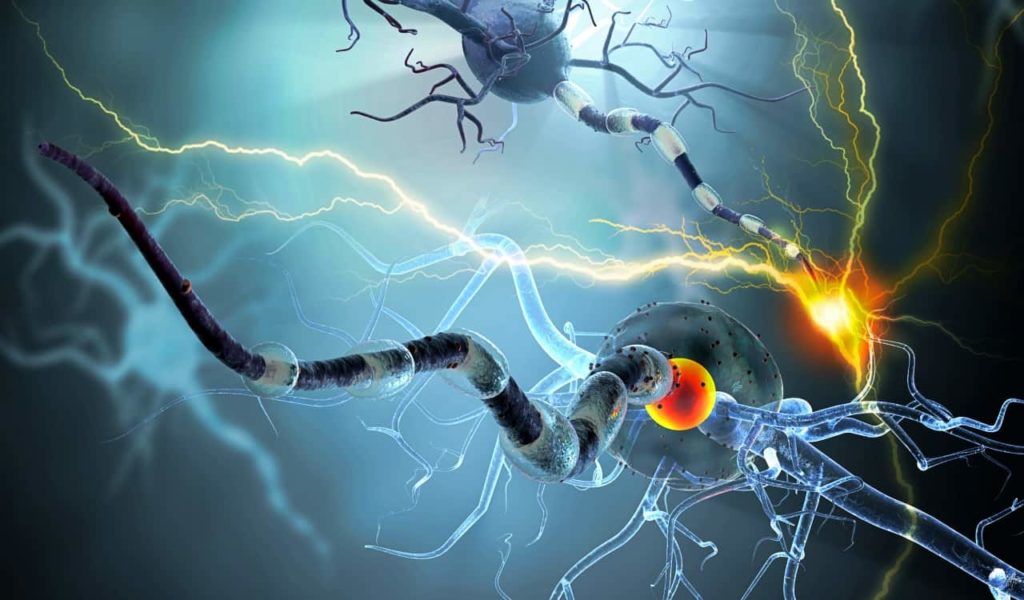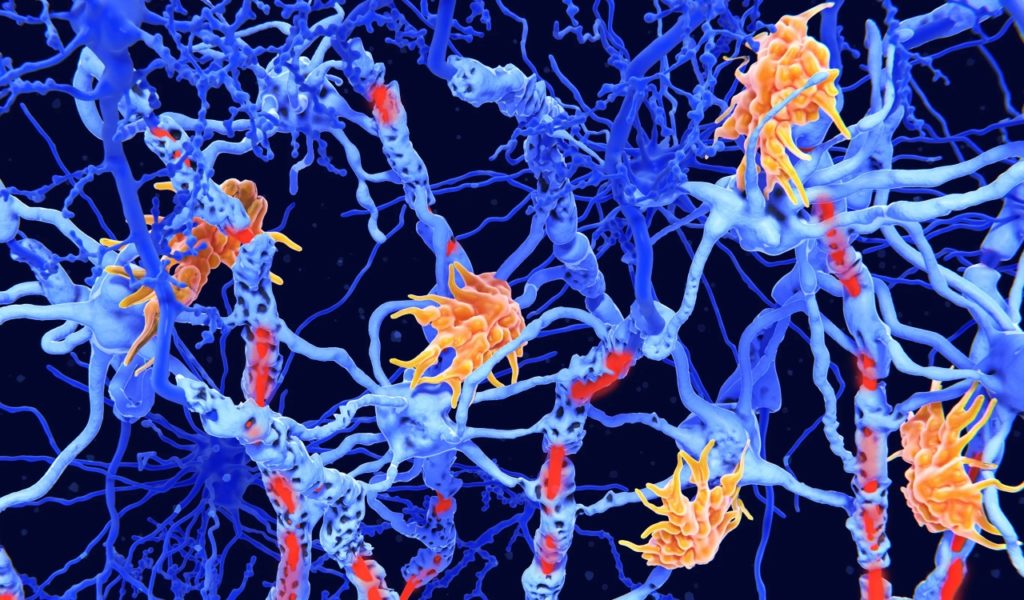A new vaccine has been created, yet this is unlike any other vaccine known previously. In fact, it’s a new type of vaccine altogether. Known as the Inverse Vaccine, instead of activating the immune system to perhaps prepare it for a possible virus fight, the vaccine selectively suppresses it.
The concept for the Inverse Vaccine was to create something that could help fight autoimmune diseases. These diseases cause a person’s immune system to erroneously attack the body.
That can create several issues for someone, causing them to develop virus-like symptoms and even pain due to the immune system. While most autoimmune diseases work similarly in this concept, the symptoms one deals with vary from disease to disease.
How The “Inverse Vaccine” Works

As for the Inverse Vaccine, while the goal is to use it for autoimmune diseases eventually…it has only been tested in mice so far. One test involved a mouse that has a condition similar to multiple sclerosis.
This disease attacks myelin sheaths, the insulating coats around nerves in the brain and spinal cord. It slowly and systematically destroys them over time. Treatments are minimal, but this vaccine treatment shows it can actually reverse symptoms and even restore the function of nerve cells!
These findings were discussed in a recent article for Nature Biomedical Engineering.
The Inverse Vaccine works by tricking the immune system into recognizing nerves are “safe” rather than some type of foreign terrorist in the body that needs to be attacked. While the vaccine has not been tested on any human subjects, the results so far are very promising.
While the concept of this type of vaccine is not new, the study is quite exciting, because it shows that this can work to alleviate autoimmune diseases…at least temporarily.
Teaching The Body

Immune cells known as T-cells protect the body from invaders, such as viruses and diseased cells. Think of something like a cancerous tumor. They identify the cells that need to be attacked by binding to specific antigens that typically appear on the outside of a virus or cell.
Yet for autoimmune diseases, T-cells mistake healthy cells in the body for invaders. They’ll then attack autoantigens, which are molecules one finds only in normal cells.
The question is: how does one stop the body from attacking itself? Well, you teach it how to leave those autoantigens alone. The body even has a way of teaching itself how to do this.
A special group of cells in the liver present antigens to T-cells and tell them they are safe. The liver has these specialized cells because as it filters blood, it must know the difference between dangerous antigens & safe ones.
To study the Inverse Vaccine, researchers hijacked this process straight from the liver’s process to mark the body’s cells as “safe” from T-cell attack.
When it came to testing the mouse, they used a specific antigen found in myelin. To stop the attack, they tagged the antigen with a special sugar and these sugar-tagged antigens were taken to the liver where the specialized antigens picked them up.
These antigens then reprogrammed the T-cells to leave myelin alone and to even protect it. That, in turn, removed myelin from the immune system’s “destroy list.”
Inverse Vaccines Are Exciting

Inverse vaccines are really amazing. They would suppress one cell type in the immune system, unlike the standard therapies that affect the body in a more broad format.
Lucy Walker is a Professor of Immune Regulation at University College London who was not involved in the research. But when asked about it, she claimed:
“Most immune therapies for autoimmune diseases act in a general way and don’t just target the disease-inducing T-cells. Ideally, we’d want suppression to act in an antigen-specific way, so only the pathogenic T-cells are targeted and others are left free to function.”
This means one could avoid side effects, especially things like increased risks of infection associated with using standard immune-suppressing therapies or drugs, like Methotrexate.
The vaccines also stimulate the formation of immunological memory. This is the body’s ability to remember infections so that it knows how to properly respond the next time it comes across invading microbes.
Jeffrey Hubbell is the study’s Senior Author and is a Professor of Tissue Engineering at the University of Chicago. Discussing this concept, he claimed:
“Current therapies for autoimmunity are really sort of broad immune suppressants and they work while you’re taking them but when you stop taking them, they stop working. The idea with the vaccine is that you develop memory of that therapy.”
It Still Needs More Time

Walker claims that while these results are very promising, more work needs to be done. Especially if we want to properly develop the technology into a treatment that can work in human beings.
One issue they are looking at is the “protective effects” of the vaccine. They found that these only lasted for a few weeks, and it’s uncertain how long they could last as of yet. That is especially true when you factor in humans.
Another issue is that the immune system could regain its memory of its previously targeted antigen. This could mean one might need a booster dose, which happens a lot in many regular vaccines. We’ll need more clinical studies to investigate the need for this.
Of course, success in animal models gives us a lot of information. However, that does not mean success will happen in humans. Inverse Vaccines are tricky, especially one that would work like this.
Another tricky problem is that scientists will need to identify the specific autoantigen that causes a specific autoimmune disease. This is crucial to stopping the body’s attack. That can be tough for something like Psoriasis, as it is uncertain what the autoantigen is for it.
Meanwhile, for things like multiple sclerosis, several autoantigens can be targeted by the body’s immune system. That makes it very difficult to know if an Inverse Vaccine can even work for some autoimmune diseases.
Clinical Trials Will Give Us More

Sugar-modified antigens to dampen autoimmune responses have already been tested. Early clinical trials for celiac disease show it is both safe and effective. That is an autoimmune condition known for injuring the small intestines when one eats anything with gluten.
A second trial is currently underway that is looking at the safety of the approach for those with multiple sclerosis.
While this area of study is falling behind other types of immunotherapy, it isn’t being forgotten. In fact, the United States Food & Drug Administration recently approved the Teplizumab injection. Which we can use to delay the onset of Type 1 Diabetes.
That said, we’re likely going to see more immunotherapies that target problematic issues people deal with. Autoimmune diseases affect a lot of people, so trying to end these or offer much better treatment for them would be ideal.
References:
“Inverse vaccine” shows potential to treat multiple sclerosis and other autoimmune diseases